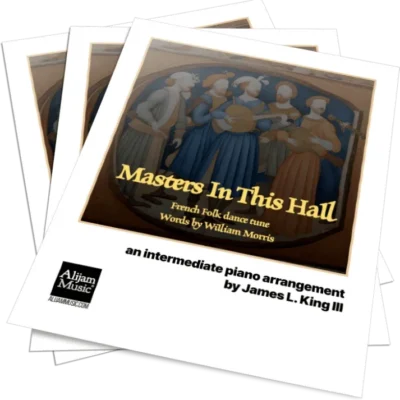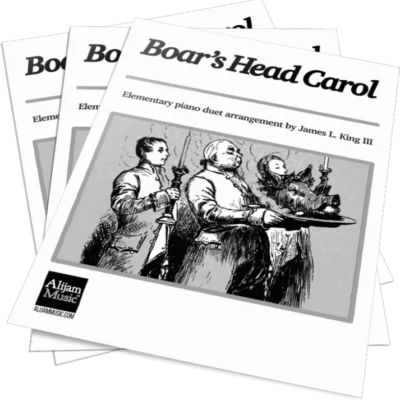Description
One of the most cherished traditions of Christmas is community singing. Many Christmas carolers end a caroling session with We Wish You a Merry Christmas (and a Happy New Year).
Arthur Warrell, a musician from Bristol, England, is responsible for the popularity of the carol today. Warrell arranged the tune for the University of Bristol Madrigal Singers, and had that arrangement premiered on December 6, 1935. It was published that same year with the title A Merry Christmas: West Country traditional song.
It is conspicuously absent from other collections of carols, leading some to think that Warrell might well be the composer, but claimed the arrangement was of a traditional tune so it would have more acceptance. Musicologists Hugh Keyte and Andrew Parrott describe it as “English traditional” and “[t]he remnant of an envoie much used by wassailers and other luck visitors” in The New Oxford Book of Carols.
The greeting itself, “A merry Christmas and a happy New Year” is recorded from the early eighteenth century.
A closely related lyric, dating from the 1830s, reads as follows:
We wish you a merry Christmas and a happy new year;
A pocket full of money, and a cellar full of beer.
It was sung by mummers: children who sang from door to door, requesting gifts. There is a long-standing tradition of the wealthy in a community giving treats to carolers on Christmas Eve, such as a sweet bread pudding filled with raisins, plums, and/or figs. (“Figgy” pudding)
This arrangement stays within Middle C position for all three parts, but eighth note passages, accidentals, and the overall tempo just barely push it to the late elementary level. It has a nice, full, rich sound, with a sparkling counterpoint section in the return of the main theme near the end.
It can be used with those who have mastered Tringle Bells and are not quite ready for Un flambeau, Jeannette, Isabelle!
Individual parts and a combined score are provided for maximum flexibility.
Key: C Major
Mood: joyful, playful, celebrating
Pedagogy: ensemble playing, accidentals, repeats, hands together playing, counterpoint between two players.





Reviews
There are no reviews yet.